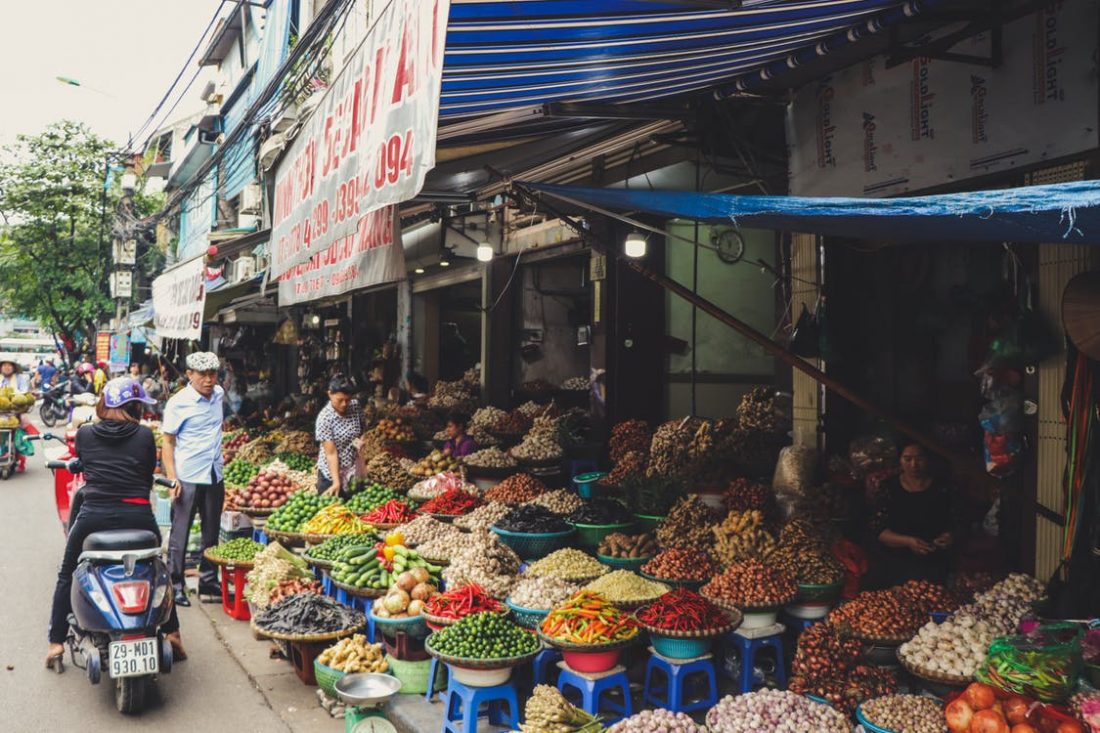The growing value of vegetarian and local cuisine in hospitality
Protection of the environment is going to be and already is one of the hot topics in tourism and hospitality in 2020. The different sub-sectors in tourism and hospitality will have to take this into account through various business decisions. Eurogites focuses on the green trends in hospitality for the upcoming year in the second blog of this trend-series.
Plastic-free sector
This year, new legislation on the use of plastics will come into force in Europe, forcing restaurants and hotels to adapt to the new regulations with actions such as replacing takeaway food containers, using biodegradable straws or using paper tablecloths. Sustainability in restaurants must encompass all areas of business, from the choice of suppliers and ingredients, to waste management and the use of certain materials.
Growth of visitors in secondary destinations
Travelling to secondary destinations or less well-known places to try to reduce excess tourism and protect the environment will increase greatly in 2020. 54% of global travellers want to do something to help reduce excess tourism, while 51% would be willing to change their original destination to a lesser-known but similar one if it would reduce their environmental impact (Dijk, 2019).
Next to that, 60% of global travellers would like access to an online service, such as an app or website, that would recommend destinations where increased tourism would have a positive impact on the local community (Dijk, 2019). One of these applications is With Locals (refer to the previous blog), where travellers can connect with local people who offer authentic, localized experiences in their city.
In order to minimize the environmental impact, trips to secondary destinations and a commitment to local experiences will see an upturn. In 2020, travellers will be looking to discover lesser-known, authentic places. In the times of mass tourism, local experiences are gaining strength. Today, many travellers are more inclined to authenticity and localism, but without forgetting the most emblematic aspects of the destination. A type of experience that will be in high demand are those in which you can immerse yourself in the culture of that country by living with locals and people from there, the so-called Live Like a Local. Travellers will often choose destinations where they can live immersive experiences that give them access to do and eat like the locals do and even share something of their lives (Barcelo Hotel Group, 2019).
Supporting destinations by providing ecological tours
Ecological tours are also gaining popularity and often become exceptional, “They share privileged information about the area and how to protect it for the future. Tours that use part of their income to finance sustainability projects, such as the restoration of forest and animal habitats, are beginning to be valued over alternatives that do not defend any cause” (Renones, n.d.).
Innovative but also healthy dishes
The concept of healthy food has gone from being a fad to becoming a lifestyle. Customers are not only looking for dishes that surprise the travellers but also for dishes that are beneficial to their health. Organic and locally produced products take precedence over-processed foods. In addition, it is important to remember that going to a restaurant sometimes means spending a lot of money to eat something different from what is cooked at home. A chef should not hesitate to innovate with new recipes, exotic flavours, surprising textures, funny menus and didactic creations to surprise his guests. The Avocado Show in Amsterdam is extremely popular due to the booming product: the avocado.
Screenshot www.theavocadoshow.com
Vegetarian alternatives
It is currently estimated that there is a high percentage of vegetarians in Europe, in Spain alone there are about four million (Moran, 2019). This is an important public that has led to a change in the menus of restaurants, which are increasing the options for these customers and improving their dishes as this alternative grows. There is already a large industry working on replacing meat and animal products with foods of vegetable origin. By implementing this in the hospitality industry – food and beverage organizations can also serve this target group who are seeking a true vegetarian experience.
NTG Skills
Eurogites also contributed to the NTG survey and interview distribution. Find out more about the outcomes of the NTG research here.
By Eurogites
Follow the efforts of the Next Tourism Generation via our website, Facebook, Twitter | #NTGskillsalliance or via LinkedIn
Sources
Dijk, A. (2019). Booking.com predicts the top travel trends for 2020. Retrieved from: https://globalnews.booking.com/bookingcom-predicts-the-top-travel-trends-for-2020/
Barcelo Hotel Group (2019). Estas son las 5 tendencias que marcaran de viajes en 2020. Retrieved from: https://www.preferente.com/noticias-de-turismo/estas-son-las-5-tendencias-que-marcaran-los-viajes-en-2020-295416.html
Moran, I. (2019). El 10% de la poblacion espanola ya tiene una alimentacion principalmente vegetal. Retrieved from: https://www.20minutos.es/noticia/3587227/0/alimentacion-vegetal-espana/
Renones, S. (n.d.). Cuales son las tendencias turisticas para el 2020? Retrieved from: https://www.ceupe.com/blog/cuales-son-las-tendencias-turisticas-para-el-2020.html





No Comments